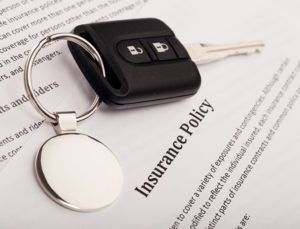Liability vs. full auto insurance coverage is an essential question for every Nevada motorist. You probably know that Nevada law requires all drivers to have specific types of insurance, but many drivers are surprised to learn that the insurance they’re required to have covers only the damage that they cause to other vehicles.
Liability insurance alone leaves a lot of gaps. So, what is the difference you ask?
Our Las Vegas car accident attorneys fully explain full vs. liability coverage.
START YOUR FREE CONSULTATION
NO FEES UNLESS WE WIN!
Call (702) 382-0000 for a free consultation
What Does Full Coverage Insurance Mean?
Full coverage insurance means the policy provides compensation for any type of loss that could occur.
Full coverage car insurance covers damage when you’re at fault for the accident and when the other driver is at fault. In addition, you’re covered for damage that occurs but is not related to a car accident.
Full coverage means your insurance policy pays you regardless of how or why the damage to your vehicle occurs.
What Is Considered Full Coverage Auto Insurance?
Full coverage car insurance consists of the following:
- Liability – When you’re at fault in an accident, liability coverage pays the other driver. Your insurance provides compensation to the other driver rather than having to pay the other driver out of your own pocket. Liability insurance is required in Nevada.
- Collision – Collision insurance pays you when you’re responsible for causing an accident that damages your vehicle. While liability pays for the other driver’s damages, collision insurance reimburses you for your own losses. That way, you’re not left with a damaged car and no way to get repairs or forced to buy a new vehicle. Collision insurance helps you cover your own losses when you’re at fault for the accident.
- Comprehensive – Sometimes, damage to a vehicle occurs without a car accident at all. Weather events, falling trees, flooding, vandalism and fires can all destroy a vehicle. Comprehensive coverage ensures that you can buy a new car or get repairs done when your vehicle is damaged in a way other than an accident.
- Uninsured/Underinsured Motorist – When the other driver is at fault for an accident, their car insurance should pay you for your damages, at least in theory. However, if they don’t have insurance, you can be left without compensation. Uninsured/underinsured motorist insurance pays you out of your own insurance policy when the other side can’t cover their legal obligations.
- Medical Payments – Medical coverage pays for your medical bills when you’re hurt in an accident. Medical payments coverage can cover you, family members or other people in your car, depending on the specifics of your policy.
If you have all of these types of insurance, it is considered full coverage auto insurance.
Related: What is Personal Injury Protection (PIP) Coverage and How Does it Work?
Is It Worth Having Full Coverage Auto Insurance?
It is worth having full coverage auto insurance if your vehicle is less than 10 years old, or if your vehicle has a value of more than a few thousand dollars.
If you don’t have full coverage auto insurance, you must be prepared to completely lose the value of your vehicle if you’re at fault for the accident or if the other side doesn’t have the insurance or resources to pay you.
It’s worth having full coverage auto insurance if your car is worth more than you want to risk losing considering the cost of the premium.
Related: How to Get Compensation for Repairs After a Car Accident
Do I Need Full Coverage Insurance on a Used Car?
You need full coverage insurance on a used car if it’s worth more than a few thousand dollars.
Many used cars still have significant value. For other used vehicles, the vehicle isn’t worth enough to pay the premium, and you can just take the risk of having to cover your losses out of pocket.
Usually, the line for when you should have full coverage insurance on a used car is when the vehicle is worth about $3,000 or more.
However, whether you need full coverage insurance on a used car depends on your assets and what you can afford to risk.

Full vs. Liability Coverage
Full and liability coverage is something that every driver has to consider.
Liability coverage alone has a lot of holes in terms of the damage that can leave a driver without compensation.
However, full coverage isn’t right for everyone. There are some circumstances in which only liability coverage is appropriate.
Liability coverage is an option, but there are significant exclusions, and you don’t want to learn the hard way that your insurance doesn’t cover what happens to your vehicle.
Adam S. Kutner, Injury Attorneys Are Here For You
Have you been in a car accident?
You deserve to have full compensation based on the law, your insurance coverage and the insurance coverage of the other party.
Don’t settle for less than everything you deserve. Call our law firm today.
Call (702) 382-0000 for a free consultation
Adam S. Kutner is a top 100 trial lawyer with 33 years’ experience and expertise that will benefit you
Call us at (702) 382-0000 anytime to schedule a free consultation. We will work to get you the maximum settlement as quickly as possible so you can move forward on your healing journey.
START YOUR FREE CONSULTATION
NO FEES UNLESS WE WIN!
Home visits are available
Call now for details
SE HABLA ESPAÑOL

Adam S. Kutner
PERSONAL INJURY LAWYER
With more than 33 years of experience fighting for victims of personal injury in the Las Vegas Valley, attorney Adam S. Kutner knows his way around the Nevada court system and how to get clients their settlement promptly and trouble-free.














